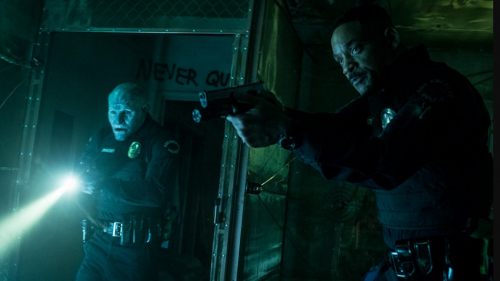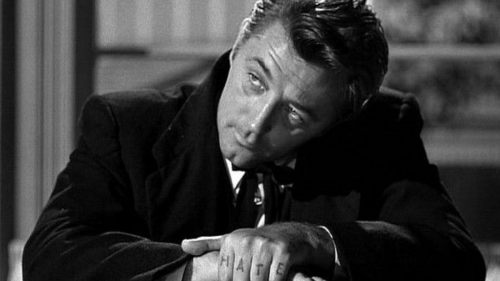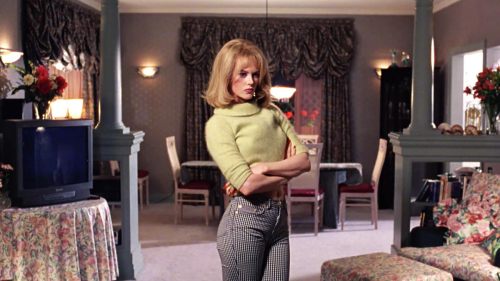Cover to Credits: BRIGHT LIGHTS, BIG CITY
“Here you are again. All messed up and no place to go.”
- Jay McInerney, Bright Lights, Big City
"The book was better" is a phrase heard often in conversations about book-to-film adaptations. "Don't judge a book by its movie" is another common jab. While we've all uttered some version of this sentiment at one point or another, there have been those rare occasions when the opposite is true. As a lifelong bookworm and cinephile, I've discovered that whether I read the book before or after seeing the movie can have a profound influence on my enjoyment of the story across both mediums. In this column, I’ll be checking out old and new adaptations to further explore both sides of that experience. In the process, I hope to unveil how these two vastly different mediums work together to tell the same story, from cover to credits.
---
Jay McInerney’s iconic debut novel, Bright Lights, Big City, invites readers into the cocaine and doubt-fueled mind of a nameless narrator endeavoring to see a future beyond the haze of terrible choices he’s made of late. Living life in the fast lane of 1980s Manhattan, the would-be-writer spends his days going through the motions as a fact checker for a prestigious magazine, reserving his nights for imbibing in various forms of self-destruction. Recently deserted by his supermodel wife, Amanda, and repressing his grief over the death of his mother a year prior, the disillusioned twenty-something struggles to remember a time when his ambitions of making it in the big city meant more to him than burying his feelings of inadequacy under a mountain of white powder. The book’s unique second-person narrative (“You are not the kind of guy who would be at a place like this at this time of the morning”) walks us through a week-in-the-life where everything that can possibly go wrong does, leaving “you” with nothing more than a loose thread to his once clear vision of the future to hold on to.

Somehow, the charmingly witty voice of McInerney’s protagonist makes us care for him, despite the fact that his increasingly irresponsible actions are the root of all his problems. Sustained by all-nighters drinking and drugging with his friend and Duke of Decadence, Tad Allagash, even when he manages to make it into the office, his ambivalence and incompetence on the job ensure it’s only a matter of time before he’s fired. Running from the circumstances surrounding his failed marriage, not to mention wallowing in the sudden lack of interest for pursuing his dream of writing, the thread he’s hanging by inevitably breaks, revealing that everything in his life soured the moment he lost his mother to cancer. Having spent the last year avoiding responsibility and reality, he’s the kind of guy who’s gotta hit rock bottom before he can start digging his way out. Luckily, diving in headfirst means reaching the bottom will take a lot less time.

The 1988 film adaptation was originally meant to star Tom Cruise with Joel Schumacher directing. While Schumacher likely would have brought a more stylized edge to the film’s portrayal of drug use and Manhattan nightlife than his successor James Bridges (The China Syndrome, Urban Cowboy), he left the project because of the studio’s inability to commit to a script. Bridges ended up working from McInerney’s original draft of the screenplay with cinematographer Gordon Willis (Klute, The Godfather) and Michael J. Fox stepping into the role of the freshly named lead character: Jamie Conway. With a talented supporting cast including Jason Robards, stealing the spotlight as an alcoholic fiction editor Jamie views as a mentor; Dianne Wiest as his ailing mother; Phoebe Cates as his estranged wife; Tracy Pollan as the prospect of something better waiting for him at the end of the tunnel; and Kiefer Sutherland, sliding easily into the slick suits of the morally bankrupt Tad Allagash, Bright Lights, Big City comes so close to being a perfect adaptation, reduced only by the fact that it never quite nails the distinctive atmosphere or voice of McInerney’s novel.

McInerney credits the music scene in 1980s New York as his inspiration for the book, hoping to create a literary equivalent of the time by channeling the raucous energy emanating from clubs like CBGB and Max’s Kansas City into his fast-paced prose. And it’s precisely that kind of elevated vibe that’s missing from the nightlife depicted in the film. Of course, there’s also the issue of Fox’s wholesome reputation following him from Family Ties and films like Teen Wolf and Back to the Future, making it difficult for audiences to take Alex P. Keaton seriously as the guy snorting coke in a bathroom stall and unleashing a live ferret in the office of his former boss. While the wry voice of the novel certainly conjures an image more disheveled than the clean-cut Mr. Fox, there are moments, such as his drunken monologue in the apartment of a former co-worker where the actor does an exemplary job embodying the heartbroken and embittered young man.

Overall, the film’s biggest misstep is that it reveals the catalyst for Jamie’s state of mind too soon, implying he knows all along what he needs to do in order to move on. In the book, his mother’s death isn’t acknowledged or mentioned until the end, acting more as an epiphany that jolts him out of oblivion and pushes him to rid his life of toxic people and seek the help he needs. Meanwhile, the film uses flashbacks referencing the loss, which, while gracing us with the small yet moving performance from the always wonderful Dianne Wiest, diminishes the impact of Jamie’s growth and understanding of what led him down this path of self-destruction. By the end, he’s lost nearly everything, except for the lingering dream that brought him to the city in the first place. Slowing down to drink in the incomparable view of the New York City skyline, McInerney allows the skeptical character in his impressive first novel to see the bright lights from a new and more hopeful perspective.
“You will have to learn everything all over again.”



